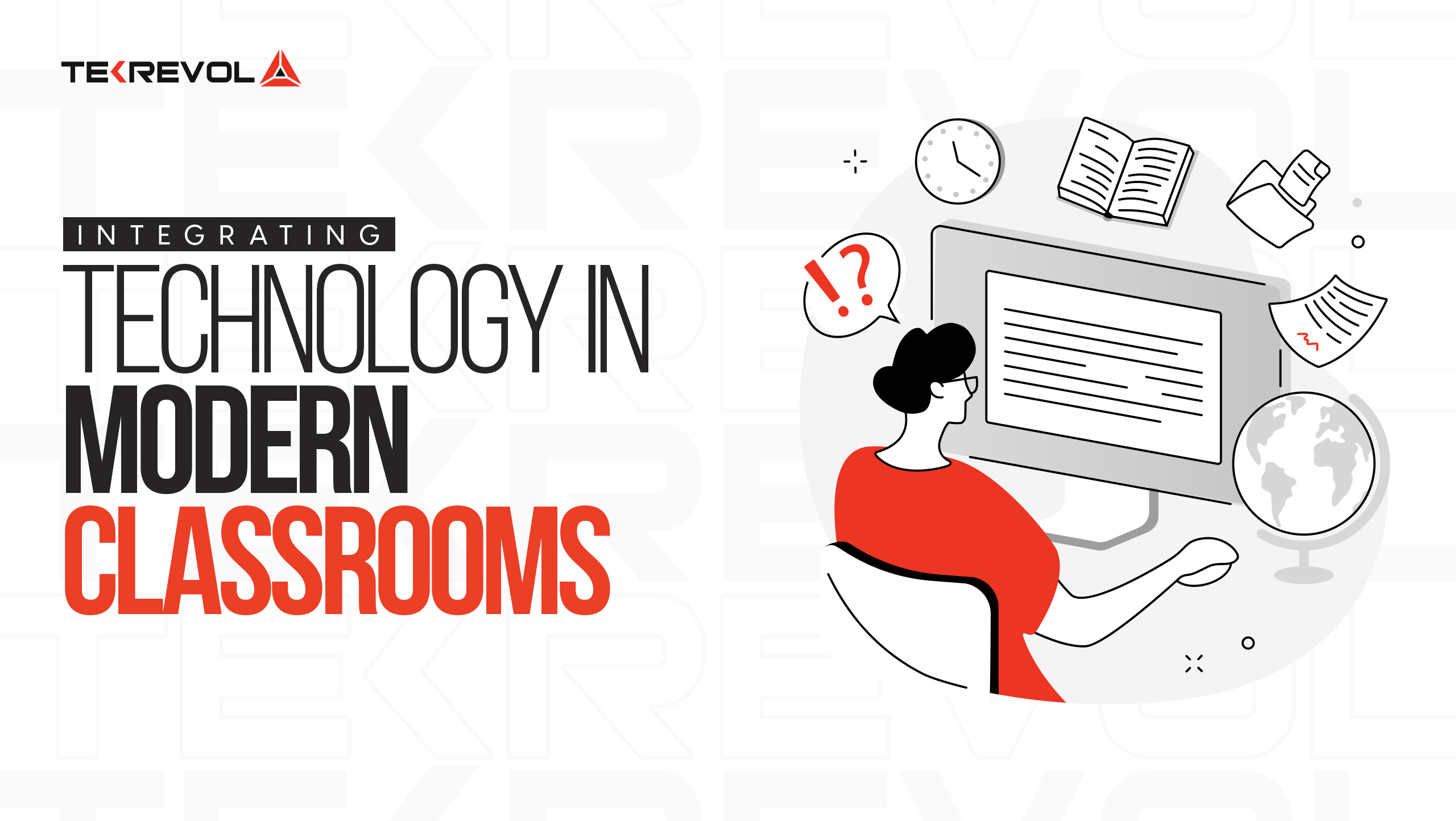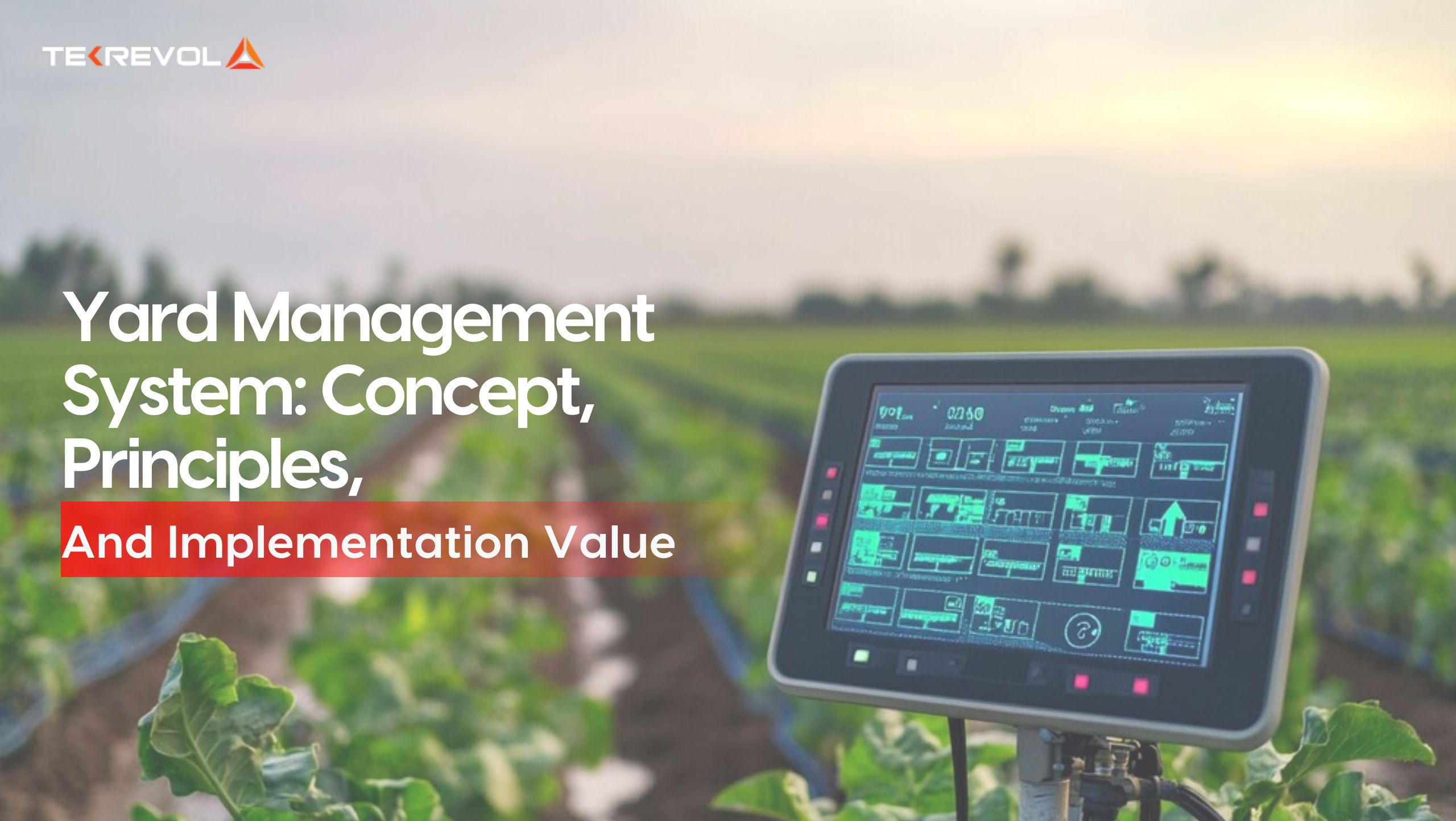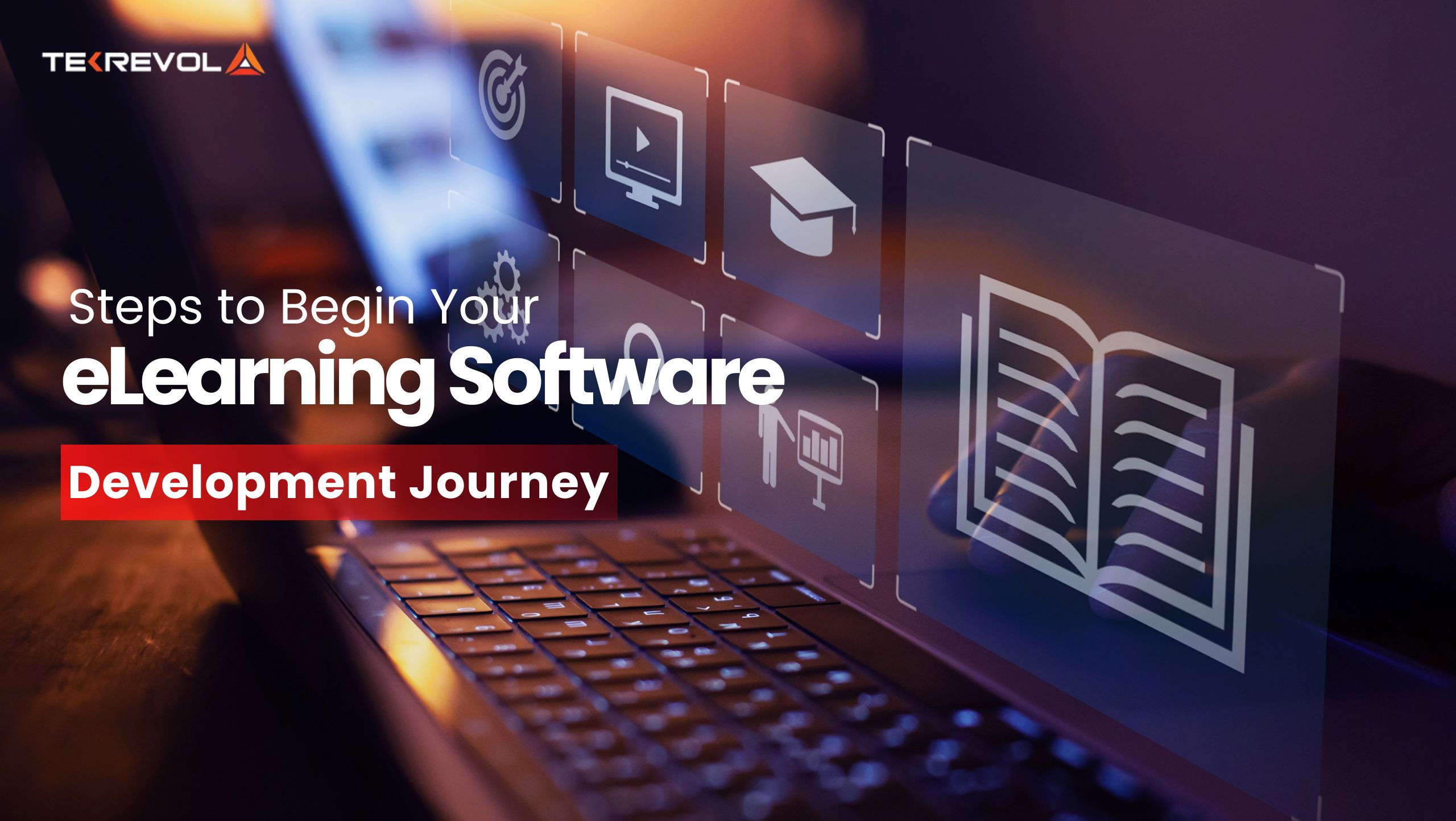As education undergoes a profound transformation, technology appears as a revolutionary catalyst, reforming industry models and propelling learning into a future of innovation.
EdTech, or educational technology, is leading this revolution, providing novel solutions to improve teaching and learning experiences.
Amidst the dynamic landscape of educational developments, there’s a unique opportunity for hands-on exploration and learning.
TekRevol invites you to at the EdTech Workshop “Future Learn Summit: Integrating Technology in Modern Classrooms” in Houston, on Tuesday, 5th December between 6 to 8 PM, at 4201 Main Street STE 200-122. Limited seats available
This workshop promises an immersive experience, providing insight into the transformative power of EdTech.
As we dive into the successful trends of 2023 to get a strong picture of how this technology integration will go in modern classrooms, it becomes clear that EdTech is not simply a tool but a catalyst for a profound evolution in contemporary education.
So, lets board on this odyssey together and redesign the future of learning.
The Role of EdTech in Modern Education System
As education embraces digitalization, EdTech is a foundation facilitating a shift from an unadventurous teaching approach to more dynamic and adaptive methods.
Integrating technology in classrooms goes over simple convenience and ease; it nurtures engagement, personalization, and an internationally accepted perspective.
EdTech is not just a supplement; it’s a trigger for a complete transformation in the educational arena.
For this reason, EdTech market is now worth $340 billion, according to exploding topics.
Corporate EdTech is a $27.5 billion industry, and in the education sector, it has increased 99% since the world witnessed lockdowns in the COVID-19 Pandemic phase.
Also, it is estimated over 70% colleges in the USA expect to launch one or more online undergraduate programs in the next 3 years.
Following is a general representation of game-based learning and market revenue on a global scale rendering to Statista in 2018 and 2024.
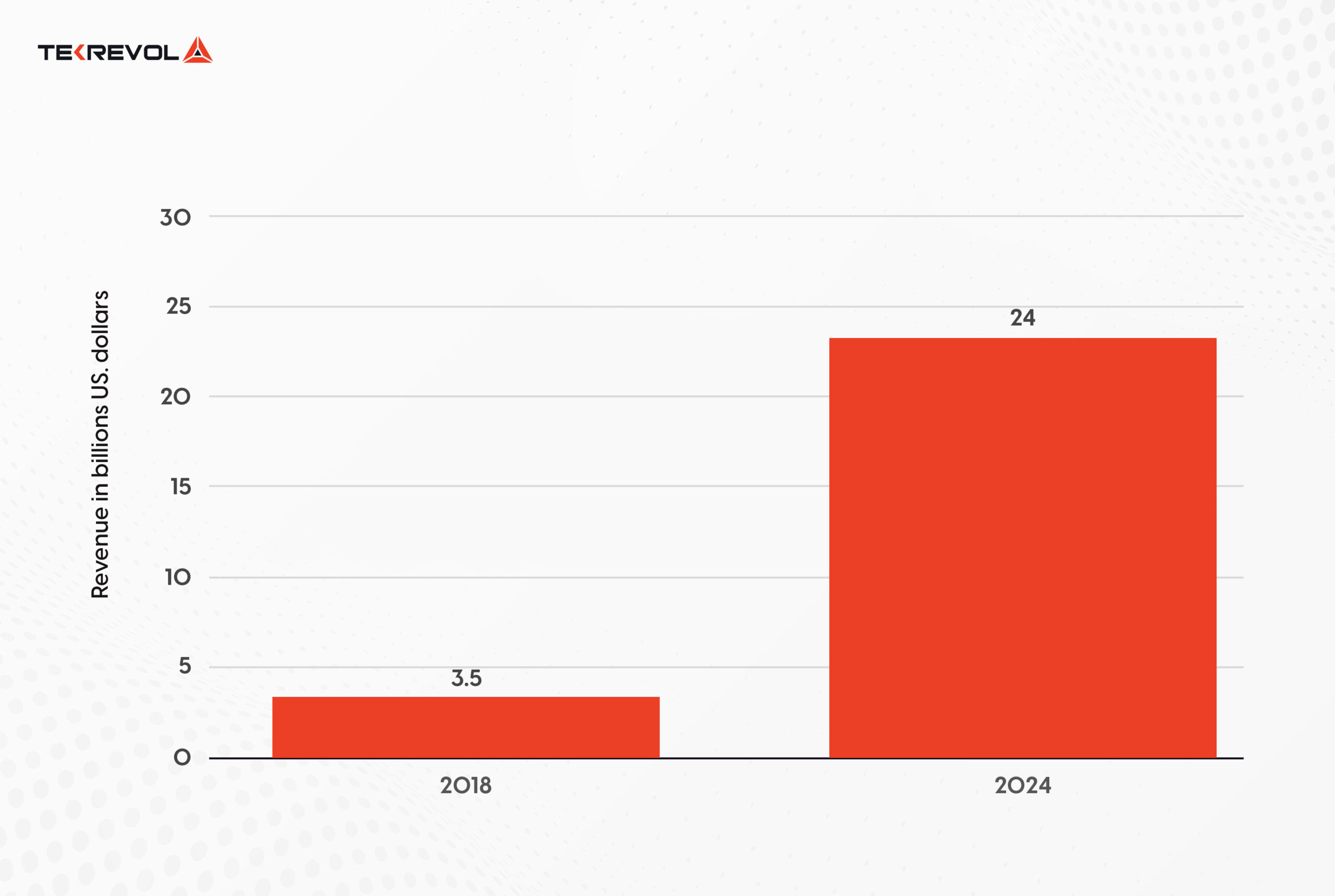
A Sneak Peek into Successful EdTech Trends of 2023
The trends of 2023 in EdTech divulge a landscape established by responsiveness and innovation.
From adaptive AII to immersive learning technologies, these trends pledge to redesign how students engage with educational content.
As we explore these trends, we board on a journey into the future of education, where technology becomes a facilitator of knowledge, inclusivity, and inventiveness.
1. Tech-Enables Immersive Learning
Extended Reality, abbreviated as XR, including Augmented Reality and Virtual Reality, appears to be a powerful tool in contemporary education and learning.
The rise in Google Searched for XR indicates a developing interest powered by the diminishing cost of standalone Virtual Reality headsets.
With Augmented Reality, students can discover 3D portrayals of different subjects, from dinosaurs to atoms, neutrons, electrons, and their chemical reactions, providing an innovative dimension in education.
Affordability and Accessibility of Extended Reality in Contemporary Classrooms
The declining costs of separate VR headsets would reach around $200 in 2023.
This decrease in cost has paved the way for extensive classroom adoption for students to try VR learning for the first time as an essential part of their curriculum.
Google Expeditions is a prime instance that permits virtual field trips, like taking a whole class on the summit of Mount Everest, the highest point on Earth, or Mariana Trench, the lowest known place in the ocean’s depths.
The availability of Extended Reality enables educational experiences and provides cost-effective solutions, as noticed in interactive Virtual Reality labs for STEM education, removing the need for expensive physical equipment.
Improving Visual Learning: Virtual Field Trips to 3D Dinosaurs
Virtual and Augmented Reality transforms visual learning, providing students with interactive and three-dimensional insights into different subjects.
Tools like Adobe Aero enable the creation of AR objects, putting life in intellectual concepts.
The collaboration of affordability and accessibility in XR unlocks prospects for immersive visual learning, revolutionizing classrooms into active centers of exploration.
Makerspaces and Beyond: Hands-On Learning in the Modern Digital Times
As Extended Range takes center stage, the idea of maker spaces delivers a new dimension to hands-on learning.
These physical arenas inside modern classrooms motivate students to innovate, create, and discover their ability to invent.
Often associated with tech projects, maker spaces function as incubators for concepts, nurturing a culture of research.
Students with different tools can dive into programming, aligning creativity with technology to enhance their productivity.
Want to know more about EdTech Gamification and Future Trends?

- Unlock the Insider's Perspective
- The Latest Statistics and insight about News Apps, Emerging Trends, and more…
2. Progressive K-12 Homeschooling Startups
EdTech is revolutionizing homeschooling by adding innovation to outdated and conventional methods.
Mastering this transformation, EdTech companies are redefining the education landscape for good.
Prisma’s Approach: Integrating In-person and Online Learning sessions
Prisma innovates by impeccably integrating in-person and online learning sessions, opening the potential of a learner with a unique dynamic.
Growth of Outschooling: Live Online Learning in Small Groups
Outschool disrupts with live, small-group online sessions, symbolizing EdTech’s adaptability and engagement in homeschooling.
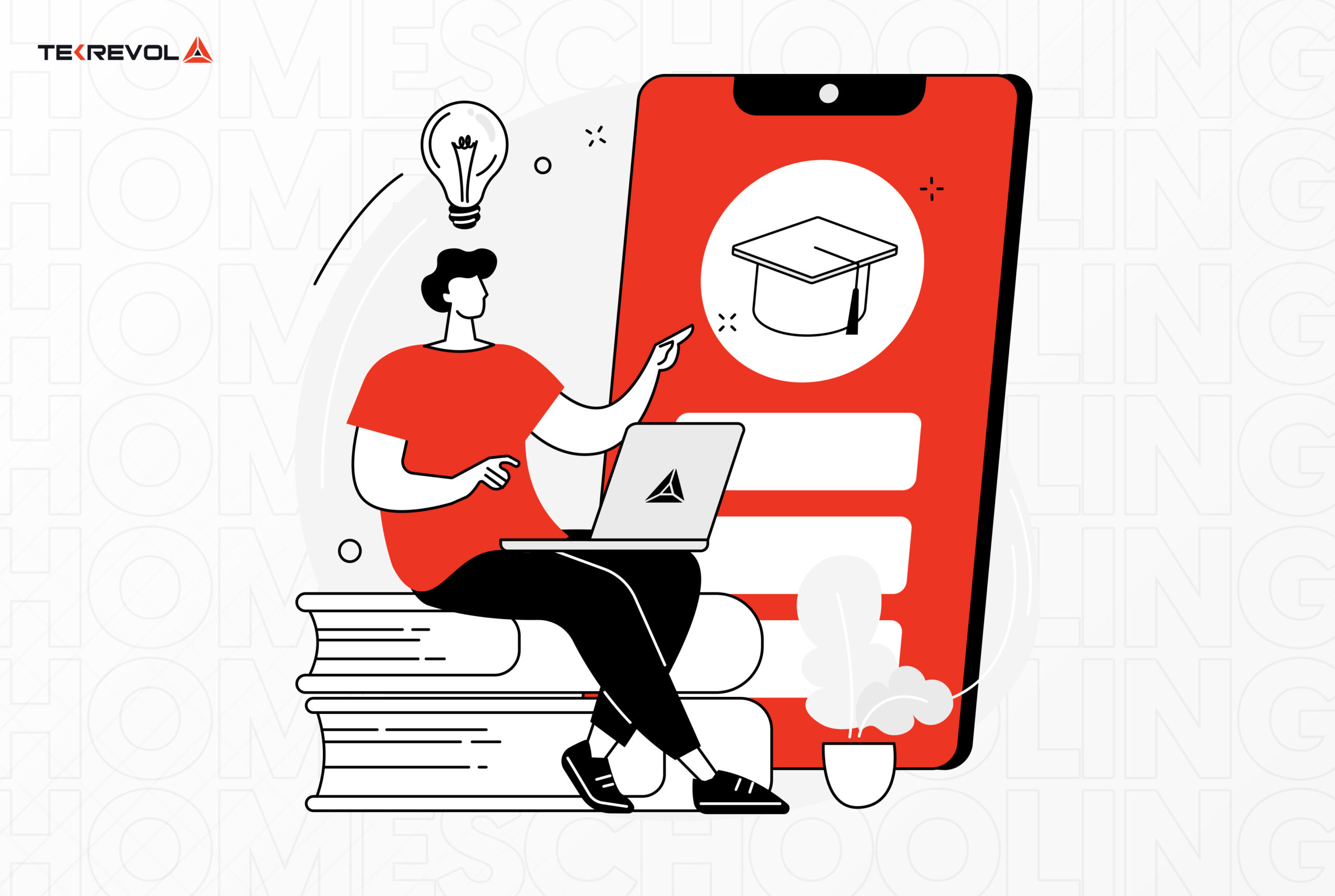
Primer Idea: Creating the Full-Stack Infrastructure for Homeschooling
Primer envisions a complete homeschooling method, from steering regulations to offering a curated resource library, mainstreaming education in the whole process.
3. Revolutionizing eLearning
ELearning is of utmost importance in 2023, promising scalable, accessible, and budget-friendly learning solutions.
Let’s take a look at transforming eLearning with the following aspects:
Cost Reduction and Scalability
ELearning is a great way to learn, and its appeal lies in its scalability, which is expected to surpass the $1 trillion mark by 2028. In this whole process, education will reform economically.
If you want to learn more about Gamification Success Stories, read our blog about EdTech transformation and profit maximization.
Multiple Platforms: Zoom, Udemy, Coursera, and etcetera
E-learning platforms vary, with Zoom, Udemy, and Coursera. Educational institutes and colleges provide online degrees, and dedicated platforms like Udemy cater to experts.
Navigating the Challenges Ahead in Online Education Transformation
Despite the drive behind EdTech gamification in integrating technology in modern classrooms, many challenges remain.
Only 7% want to return to pre-pandemic teaching, which was onsite mostly, focusing on the urgency of resolving off-campus internet availability for increasing distance learning.
4. Accessible Education for All
EdTech has played an important role in dismantling educational barriers. It functions as an instigator, dynamically resolving challenges and making education accessible for everyone.
Resolving Internet Access and Device Availability
Accessibility goes way over and beyond devices. EdTech confronts the digital divide by delivering Chromebooks and resolves internet access, guaranteeing a complete approach to education.
Mobile-First Learning
Embracing mobile-first learning appears as a solution, providing affordability and wider reach. Mobile devices, budget-friendly and independent of Wi-Fi, contribute to comprehensive education.
Free Educational Resources
To shorten the gaps and make educational resource free, Open Educational Resources and Open-Source Software play a critical role.
By delivering cost-free materials and software, they can provide access to the most required education.
5. AI-Enabled Adaptive Learning
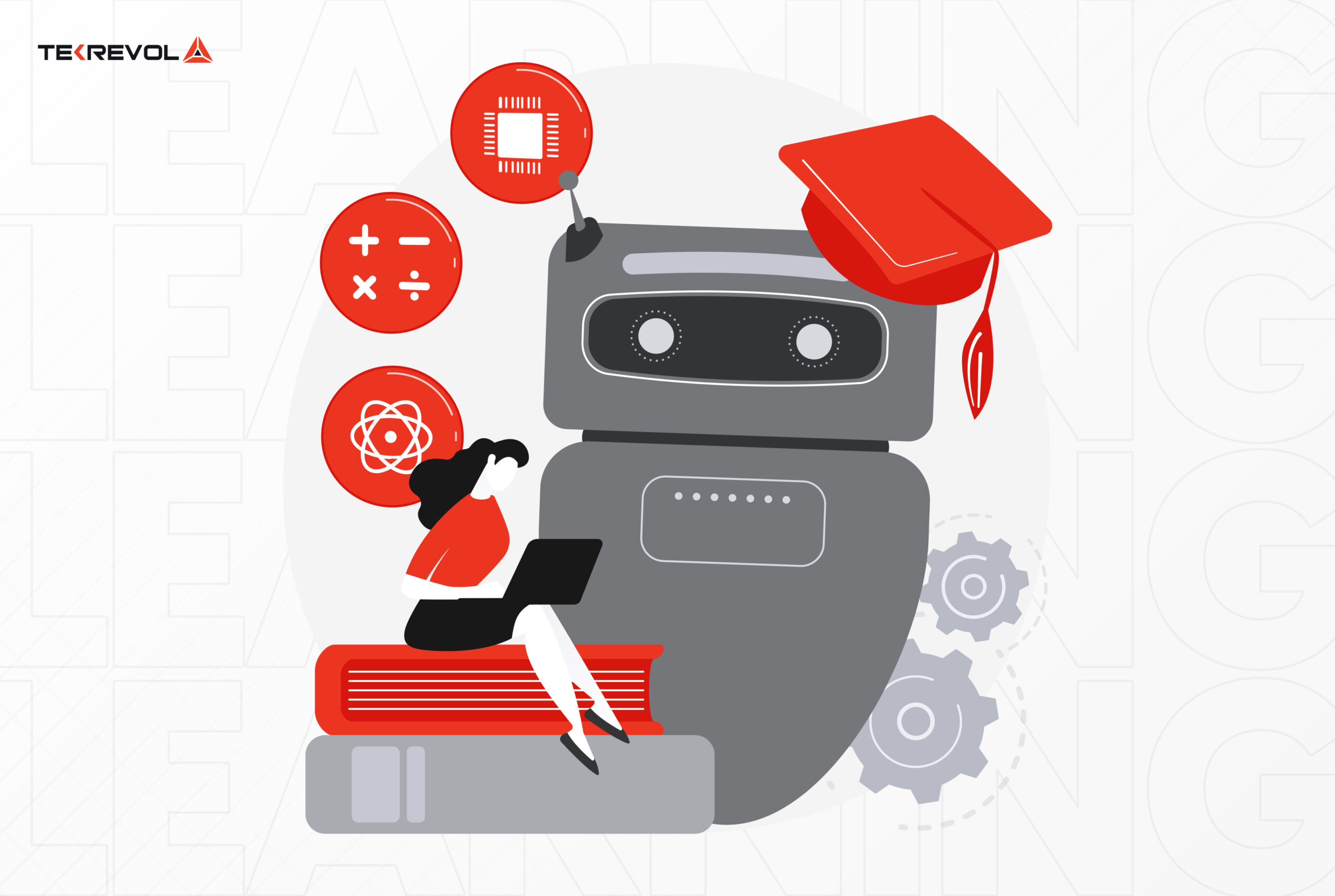
AI has changed education by modifying learning experiences. Adaptive methods and modifications to individual requirements have reformed how students interact with the educational and learning content.
Improving Math through Artificial Intelligence
Artificial Intelligence has displayed the potential of AI in education, promising up to 90% improvement in mathematics scores of K-8th Graders. It demonstrates how AI can improve and grow specific subject areas.
The Rise of Chatbots
From administrative roles to language learning, Chatbots imply AI’s increasing presence.
They improve the learning experience and restructure administrative procedures, displaying the versatility of AI.
Grading, Teaching and More: Challenges and Prospects
AI-enabled adaptive learning presents new prospects and challenges. From teaching lessons to grading essays, AI’s developing part prompts educators to steer through the complexities of integrating technology impeccably into a learning ecosystem.
6. Classroom Gamification
Educational Gamification has become a foundation for education engagement. By incorporating game mechanics, learning exceeds traditional limitations, nurturing dynamic participation and enthusiasm.
From Digital Games to Incentives
The idea of gamification has deep roots, from incentives to integrating digital games. It utilizes intrinsic motivation, making learning a relishable and immersive experience.
Beyond Play, Into Learning
Platforms like Minecraft and Roblox grow beyond entertainment, actively underwriting to creative learning experiences, from stage performances to programming.
Points-based Gamification for Every Subject
To make subjects captivating, there are many tools for points-based gamification. These tools provide competition, turning quizzes into engaging challenges while nurturing a sense of love for learning.
7. Google’s Educational Ecosystem
Google forms modern education deeply. Its tools and platforms redefine the educational world, providing easy integration and convenience.
We are now going to discuss some of Google’s educational features below:
Chromebooks and G Suite
Chromebooks and G Suite appear as the standard for every student in learning. Their reduced cost and user-friendly interface make them essential tools in classrooms globally.
Classroom and Assignments
Google Classroom and Assignments craft digital hubs for interaction. They streamline communication channels, distribute assignments, and nurture successful and organized virtual classrooms and grading structures.
Google Cloud Platform
Google Cloud Platform allows schools to have storage and computing competencies. It improves teamwork, research, and data management, positioning schools for a tech-motivated future.
Accelerating Investments in EdTech
Investments in EdTech have risen in 2023, launching education into a tech-driven future. The financial landscape reflects this industry’s potential for revolutionary growth.
EdTech unicorns have dominated globally in this evolution, signaling a seismic change. Most of the activity is in Asia, prompting questions about the course of American and European investments.
EdTech also links with finance, giving rise to innovative models. Startups like CampusLogic and CommonBond mix EdTech with financial services, reforming the sector’s landscape.
Digital Education Futures Initiative (DEFI) also plays an important role. DEFI works tirelessly to guarantee a global education system that is comprehensive, revolutionary, dialogue-driven, and experimental.
TekRevol: Transforming Educational Technology
TekRevol influences educational institutions through leading-edge solutions. Its expertise reshapes traditional models, nurturing tech-driven education environments.
Upscaling Educational Institutes, Student Engagement, & Enhancing Retention
TekRevol specializes in upscaling educational institutes with its modified approach to improve scalability, educational impact, and engagement.
We also go beyond technology, focusing on improving student engagement. Modified strategies guarantee a complete and successful learning experience.
TekRevol contributes significantly to enhanced student retention. Our solutions address key challenges, guaranteeing students to flourish in dynamic educational landscapes.
All in All: Key Takeaways from EdTech Gamification Trends
As we navigate the developing landscape of education, EdTech trends highlight the revolutionary power of technology, and they underscore the significance of adaptability, inclusivity, and a learner-focused approach.
Education stands at the junction of this shift and moving towards inclusive and experiential learning. The blend of technology and education is not just a trend but a model shift forming the future of learning.
Educators play a critical part in this transformative journey. Knowledgeable decision-making, nurturing a landscape of constant learning, and embracing technology considerately empower classrooms for future challenges and prospects.
As we wrap up this article, we invite anyone and everyone to join this ongoing conversation about integrating technology in modern classrooms.
Register now to join us at the EdTech Workshop “Future Learn Summit: Integrating Technology in Modern Classrooms” in Houston, on Tuesday, 5th December between 6 to 8 PM, at 4201 Main Street STE 200-122.
Together, with the strategic integration of EdTech and TekRevol’s expertise, we can contribute to a future where education is not just a phase but a dynamic and enriching experience for all.
- Ready to work with us on your EdTech Venture?
- Get free consultation, insider view, latest trends, and development plan.

 2812 Views
2812 Views November 22, 2023
November 22, 2023